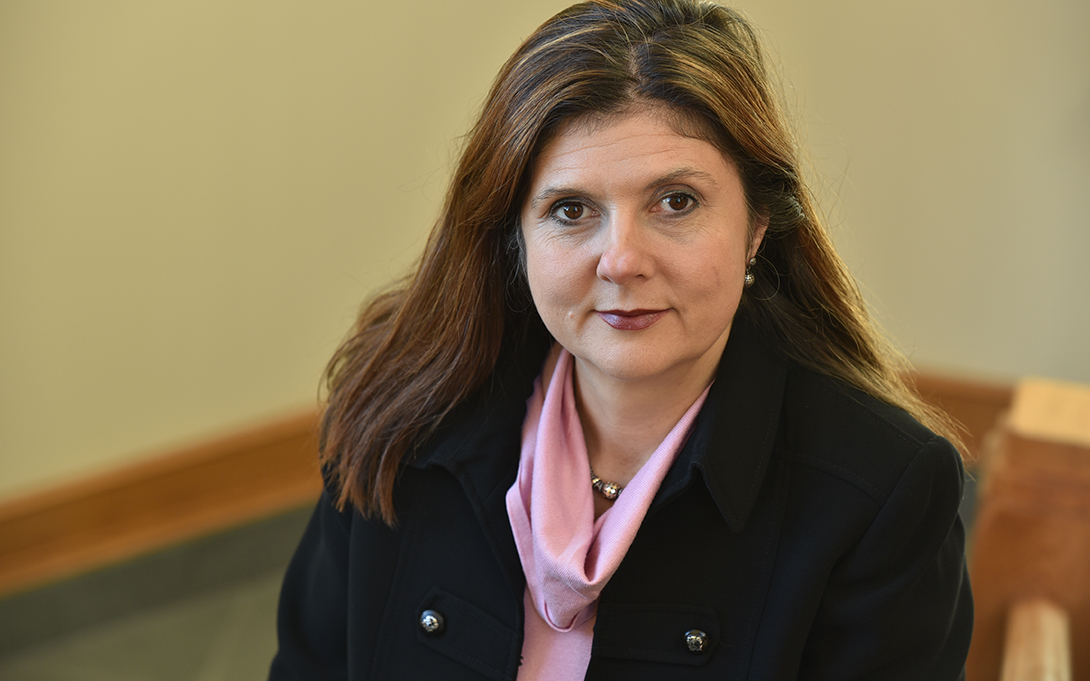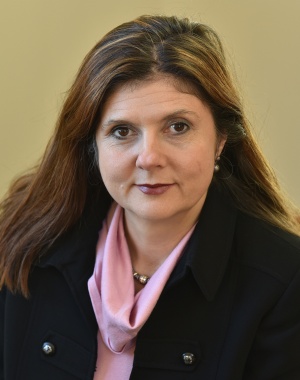
As the economy and world attempts to return to normal with the help of the COVID-19 vaccine, a new normal -- from social norms to remote work -- is emerging. Betsey Stevenson, professor of public policy and economics, recently spoke with Project Syndicate about what to expect in a post-pandemic economy.
"I think we now realize that COVID is probably not going to be defeated any time in 2021," Stevenson said. "And so, we are forming new patterns of behavior, and that’s what’s shaping what industries are going to thrive and which ones are probably not going to come back as big as they were before."
One industry struggling is the leisure and hospitality industry. During the pandemic, these workers dealt with rude customers and risky health conditions, which Stevenson blames for the labor shortage.
"The reality is that hospitality workers, leisure and hospitality workers, by coming into contact with a ton of people in person, they are at a greater risk now of catching a disease that we know has the potential for long-term consequences, not just death. So we’ve made this job riskier in terms of your health and less pleasant in terms of interacting with customers," Stevenson explained. "And then employers are saying, 'Why do people want to be paid more for this?' Well, it shouldn’t be a surprise. The job got worse. People need more money to do this worse job."
Others have blamed the labor shortage on available unemployment benefits, but Stevenson says this isn't the case.
"I don’t think when you roll back those benefits, that we’re going to see people running to take those leisure and hospitality jobs. I do think you’re going to be pulling that money out of the economy," she explained. "I just don’t think that most people are sitting there, thinking, 'It’s this 300 bucks a week that’s keeping me from taking that waitressing job or that job cleaning houses or that job working in retail.' I think what’s happened is a lot of people struggled through these in-person jobs through the pandemic, because they didn’t feel like they had any choice."
The conditions that workers operated in throughout the pandemic has forced an awakening across the country.
"There’s a lot of people who have now gotten to the other side of this, who’ve taken a deep breath and said, 'okay, financially, I’m not scared anymore, and I think there’s going to be a ton of jobs coming in the future. So, I don’t need to take this crappy job. I’m going to look for something else. Maybe I’m going to get some training and try to get a job where I don’t have to interact with people who are going to be rude to me,'" she said.
And this awakening isn't just within the leisure and hospitality industry. Forced remote work in other industries has employees raising the question of if they want to go back to the office. But, Stevenson worries that remote work could result in an increase of freelancers or contractors, who get less benefits, and therefore, less bargaining power.
"The thing that worries me most is an increase in market concentration that gives more bargaining power to the employers than to the employees. And I think that’s one of the things that has meant that we just haven’t seen a lot of upward wage pressure at the bottom of the income distribution – the bottom, even half, of the income distribution – for the last several decades," she said. "It’s because we’re seeing that increasing concentration going hand in hand with, you know, even though the economy is growing, things are getting bigger, we’re making more money, productivity is going up, it’s becoming more and more concentrated, so there are fewer people to go to."
Some companies have addressed the labor shortage with automation, which could cause some short-term disruptions,
"I think what and how we want to work and how we want to interact with technology is going to change things going forward. I think it’s really important that we’re not afraid of AI, but I do think it’s going to be important that we have a stronger social contract than the one we have right now," Stevenson said. "AI could move very rapidly. We could have large amounts of people who are very skilled, who have been doing really useful work for a large chunk of their life, who will become unmoored and don’t see where they fit into society, because AI just took what they did. And I think that could be very, very disruptive if we don’t find some kind of place for them. And I don’t think that’s just about making sure that they can eat, but maybe also making sure that there’s a way they feel valued."
Stevenson says the best way to address the possible disruptions is to be proactive.
"What do we do as a society when a large number of people don’t have very specific work they can do anymore?" she said."I think now’s the right time for us to be thinking about it, because if we can solve that problem for all these people who just retired early, then we can use that as a model, as we start to see people lose their jobs from AI."
Listen to the entirety of the podcast with Stevenson and Elmira Bayrasli here, on Project Syndicate's website.

